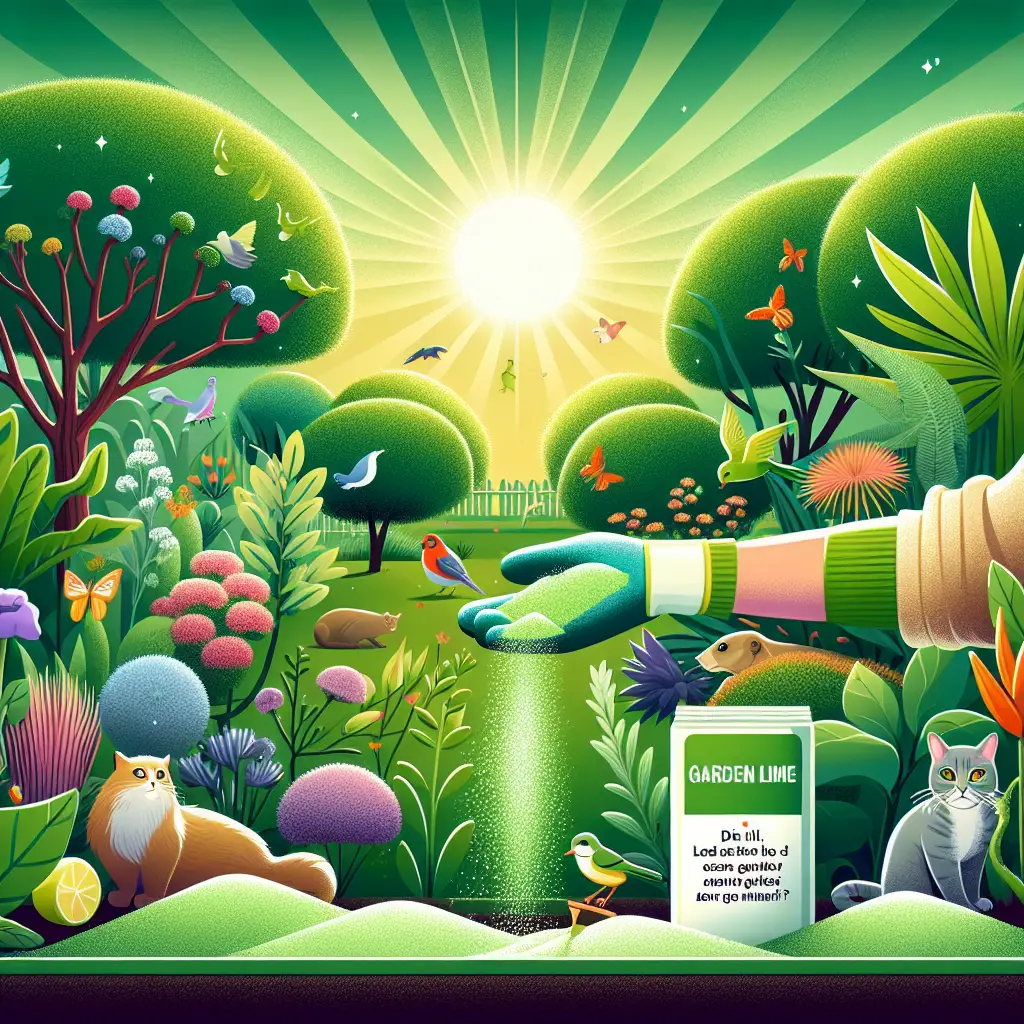Will Garden Lime Hurt Animals? A Comprehensive Guide for Pet Owners and Gardeners
When it comes to creating a lush and flourishing garden, lime is a common soil amendment that can do wonders for your plants by altering soil pH levels. However, if you have furry friends frolicking in your backyard, the question “Will garden lime hurt animals?” is not only sensible but essential. Let’s explore the impact of garden lime on animals and how to use it safely.
Understanding Garden Lime
Firstly, it’s pivotal to understand what garden lime is. Garden lime, also known as agricultural lime, is a soil additive made from pulverized limestone or chalk. The primary active component is calcium carbonate, which helps to increase the pH of acidic soils. By doing so, lime can make nutrients more available to plants, fostering healthy growth.
Garden Lime and Animal Safety
So, can this helpful garden ingredient pose a risk to your pets or the local wildlife? The short answer is, it depends on the type and application.
Types of Garden Lime
There are two main types of garden lime: calcitic lime, which contains primarily calcium carbonate, and dolomitic lime, which is rich in both calcium carbonate and magnesium carbonate. Both types are similar in their potential effects on animals.
Potential Risks for Animals
Garden lime in significant quantities is not intended for ingestion by animals and can lead to gastrointestinal issues such as stomach pain, constipation, or more significant health problems if consumed in large amounts. Inhalation of lime dust during application can also cause respiratory irritation in both humans and animals.
Precautions While Using Garden Lime
- Always apply lime according to the package instructions.
- Water the lime into the soil to minimize dust and ensure it starts to work on altering the soil conditions.
- Keep animals away from the treated area immediately after application until the lime is watered down and absorbed.
Safe Usage of Garden Lime Around Animals
Now, let’s tackle the question of using lime safely around animals.
Application Methods
Make sure you’re applying lime during calm weather, as wind can carry the fine particles and increase the risk of inhalation by animals. Applying lime just before a forecasted rain (or watering it in thoroughly with a hose or sprinkler system) can help it integrate with the soil quicker, reducing the chances of your pets coming into contact with large amounts of the substance.
Proper Dosage
One of the most crucial aspects of using garden lime safely is the dosage. An extension service from a reputable university can provide guidance on how much lime to apply based on your soil’s pH level and the type of plants you’re growing. Overapplication can cause an imbalance not only for your pets but also for your plants’ growth and can lead to a more alkaline than desired soil condition.
Storing Lime Safely
Keep lime in a sealed container, well out of the reach of animals and children. This ensures that even the curious ones won’t get into it when you’re not looking.
Using Lime with Other Garden Chemicals
Conflating garden lime with other chemical fertilizers or pesticides can increase the risk to animals. Always use each product individually and according to their specific guidelines.
Alternatives to Garden Lime
If you’re still concerned about the potential risks to your animals, or if you have a particularly curious pet, consider using a pet-safe soil amendment. Organic compost and peat moss can also help to adjust the pH of your soil, though they work more slowly and subtly than lime.
Pets and Garden Harmony
The goal is to strike a balance between the needs of your garden and the safety of your pets. Being cognizant of the kind of products you’re using and their implications is a vital step in this process. Websites like The Humane Society can provide more tips on pet-friendly gardening practices.
Conclusion
In summary, garden lime can be safe for animals when used in the correct way. As with any garden addition, responsible usage and storage are key. Remember, it’s always better to err on the side of caution, especially when our furry friends’ health is on the line.
By taking the proper precautions, you’ll be able to enjoy a beautiful, thriving garden without compromising the safety and well-being of your animal companions. For more garden insights and pet safety tips, stay tuned to our garden care series. And for those looking to buy high-quality garden lime with clear usage instructions, consider checking out this product that balances efficacy with safety for your at-home gardening needs.
Happy gardening, and here’s to keeping your pets safe and sound among the greenery!
Always consult your veterinarian or a pet care professional if you suspect your pet may have ingested garden lime or any other potentially harmful substance.


